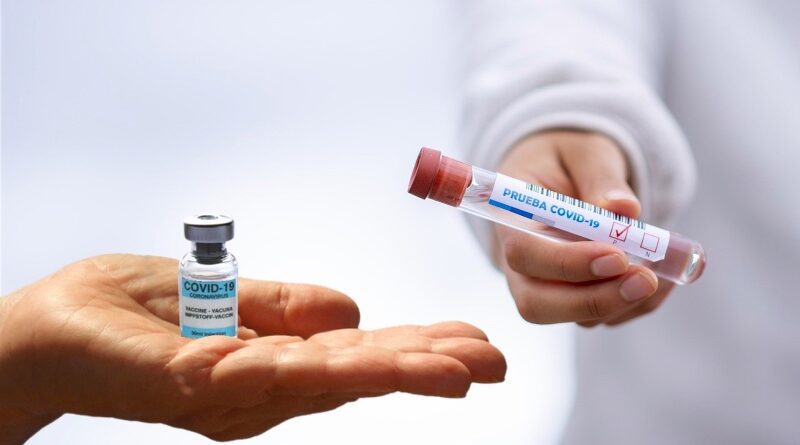CDC Study: Pfizer, Moderna Vaccines 90% Effective In Real-World Conditions
The Pfizer-BioNTech and Moderna mRNA COVID-19 vaccines are highly effective at preventing infection in real-world conditions, a new report from the Centers for Disease Control and Prevention showed.
The study looked at the effectiveness of the vaccines in preventing nfections among 3,950 study participants in six states over a 13-week period from December 14, 2020 to March 13, 2021.
The results showed that following the second dose of either the Pfizer or Moderna vaccines, the risk of infection was reduced by 90% two or more weeks after full vaccination. Following a single dose of either vaccine, the participants’ risk of infection with COVID-19 was reduced by 80% two or more weeks after vaccination.
It takes about two weeks following each dose of vaccine for the body to produce antibodies that protect against infection. As a result, people are considered “partially vaccinated” two weeks after their first dose of mRNA vaccine and “fully vaccinated” two weeks after their second dose.
“This study shows that our national vaccination efforts are working. The authorized mRNA COVID-19 vaccines provided early, substantial real-world protection against infection for our nation’s health care personnel, first responders, and other frontline essential workers,” said CDC Director Dr. Rochelle P. Walensky. “These findings should offer hope to the millions of Americans receiving COVID-19 vaccines each day and to those who will have the opportunity to roll up their sleeves and get vaccinated in the weeks ahead. The authorized vaccines are the key tool that will help bring an end to this devastating pandemic.”
Researchers were able to look for evidence of infection irrespective of symptoms.
A small number (10.7%) of infections in this study were asymptomatic. However, the majority of infections (58%) occurred among people whose infections were identified by testing before they developed symptoms or knew they were infected.
Findings from this study complement earlier reports that these two mRNA COVID-19 vaccines can reduce both asymptomatic and symptomatic COVID-19 infections.
The one-dose vaccine effectiveness estimate of this study (80%) is consistent with other recent vaccine effectiveness studies following the first dose of Pfizer-BioNTech vaccine among health care providers, but the greatest protection stil was seen among those who had received both recommended doses of the vaccine.
This study is the first of many planned COVID-19 vaccine effectiveness studies CDC is conducting to evaluate the benefits of COVID-19 vaccines in various populations and across different outcomes, such as preventing infections, doctor’s visits, hospitalizations, or deaths.
In other news:
- Dallas County Monday reported 509 more COVID-19 cases between Sunday and Monday — 288 confirmed cases and 221 probable — and 12 additional deaths. The deaths reported Monday included a Mesquite man in his 40s and a Garland man in his 50s. To date, the county’s reported a total of 19 cases of the B.1.1.7 variant first identified in the U.K., two cases of the B.1.429 varant first identified in California, and one case of a B.1.526 variant first identified in New York. Two have been hospitalized and five had history of recent domestic travel outside of Texas. One case of B.1.1.7 is a likely instance of reinfection with COVID-19, occurring over 6 months after an initial PCR-confirmed infection.
- The state Monday launched a new website to help people search for a shot across different COVID-19 vaccine providers, but only a few places in North Texas are participating. The website launch comes as Texas opens eligibility for vaccines to those 16 and older. People can register for a shot through the Texas Public Health Vaccine Scheduler and be matched with the next available appointment at a nearby vaccination site. Texans without internet access can call 1-833-832-7067 between the hours of 7 a.m.-7 p.m. to find a slot.
- Walensky Monday signed an extension to the federal eviction moratorium Monday. The moratorium that was scheduled to expire on March 31 is now extended through June 30.
- Gov. Greg Abbott, Speaker Dade Phelan, state Rep. Trent Ashby, and Hamshire-Fannett ISD Superintendent Dwaine Augustine Monday discussed the importance of reliable broadband for education, business, and health care. Ashby is the author of broadband legislation in the House that would create a state broadband office and a comprehensive broadband plan for Texas. Earlier this year, Abbott named broadband access as an emergency item for the 87th legislative session.





